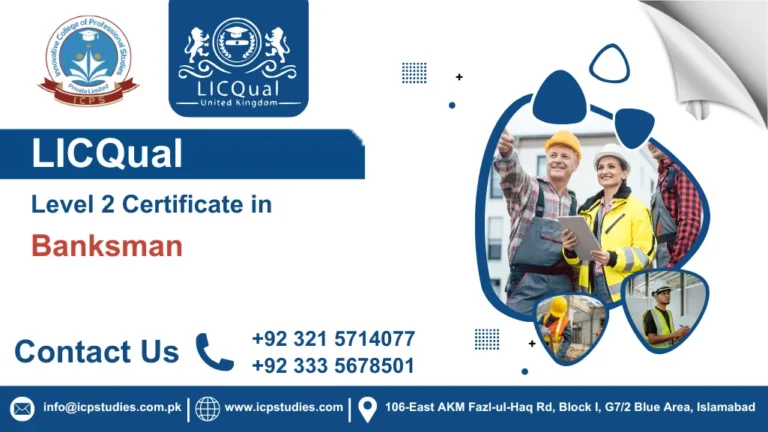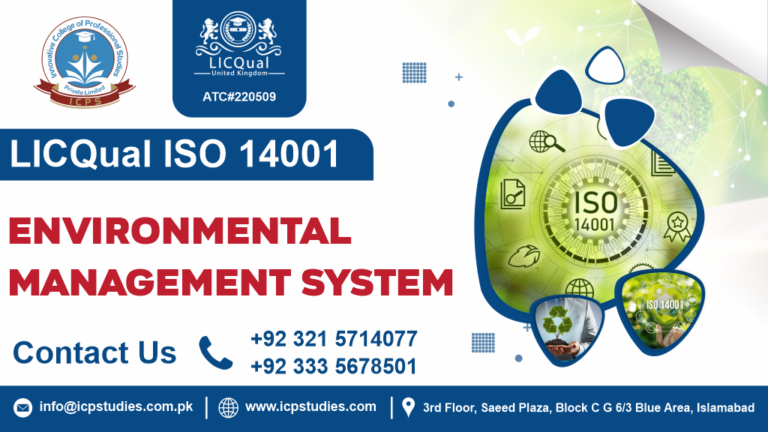In today’s socially conscious business environment, organisations are increasingly recognising the importance of ethical operations, sustainability, and community engagement. The LICQual ISO 26000:2010 Social Responsibility Lead Implementer course is a globally respected qualification designed to equip professionals with the skills to implement and manage socially responsible strategies within their organisations.
ISO 26000:2010 is an international standard that offers guidance on how businesses and organisations can operate in a socially responsible manner. It provides a framework for integrating social responsibility into values and practices. Unlike other ISO standards, ISO 26000 is not certifiable but serves as a comprehensive reference for aligning business strategies with social responsibility.
The LICQual ISO 26000:2010 Social Responsibility Lead Implementer course is a comprehensive, professional programme designed to empower individuals to lead positive change. By fostering social responsibility at the core of corporate strategy, businesses can not only meet compliance requirements but also contribute meaningfully to sustainable development and community well-being.
All About LICQual ISO 26000:2010 Social Responsibility Lead Implementer
Course Overview
The LICQual ISO 26000:2010 Social Responsibility Lead Implementer course is designed to provide professionals with in-depth knowledge and practical tools for implementing socially responsible strategies within organisations. This internationally recognised training focuses on aligning business operations with ethical, environmental, and social standards based on ISO 26000 guidelines.
Participants will learn how to lead social responsibility initiatives, conduct internal assessments, engage stakeholders effectively, and integrate sustainability into core business functions. The course is ideal for CSR professionals, compliance managers, sustainability officers, and leaders aiming to drive responsible governance in their organisations.
By completing this qualification, learners will gain the expertise needed to develop and manage comprehensive CSR frameworks, enhance brand credibility, and support long-term organisational growth through responsible practices. This programme is a valuable asset for professionals seeking to strengthen their leadership in the field of social responsibility and sustainability.
Study Units
- Introduction to ISO 26000
- Core Subjects of Social Responsibility
- Stakeholder Identification and Engagement
- Social Impact Assessment
- Integration of Social Responsibility
- Performance Measurement and Reporting
To enrol in the LICQual ISO 26000:2010 Social Responsibility Lead Implementer course, applicants must meet the following entry criteria:
Language Proficiency: As the course is delivered in English, learners should possess a reasonable level of proficiency in reading, writing, and understanding English to follow the training material and participate in assessments effectively.
Minimum Age: Candidates must be at least 18 years of age at the time of registration.
Educational Background: A minimum of a high school diploma (or equivalent) is required. However, a higher education qualification in business, management, sustainability, or a related field is recommended for better comprehension of the course content.
Work Experience: Prior experience in corporate social responsibility (CSR), compliance, sustainability, or management roles is beneficial but not mandatory. The course is suitable for both entry-level professionals and experienced practitioners aiming to formalise their skills.
The LICQual ISO 26000:2010 Social Responsibility Lead Implementer course is ideal for professionals and individuals who are involved in, or aspire to lead, social responsibility initiatives within organisations. This course is especially suitable for:
- Corporate Social Responsibility (CSR) managers and officers
- Sustainability and environmental management professionals
- Compliance and ethics officers
- Quality assurance and governance specialists
- Business consultants and advisors focusing on responsible practices
- Senior managers and executives aiming to integrate CSR into business strategy
- NGO and non-profit leaders involved in community engagement and development
- Individuals seeking to build a career in social responsibility and sustainable development
- Academics and trainers in the field of corporate ethics and sustainability
This course provides valuable knowledge and credentials for anyone looking to enhance their role in promoting ethical, transparent, and socially responsible business practices.
Learning Outcomes
Introduction to ISO 26000
- Understand the purpose, scope, and principles of ISO 26000
- Explain the concept of social responsibility and its relevance to organisations
- Identify the key themes and definitions outlined in the ISO 26000 standard
- Recognise the differences between ISO 26000 and certifiable management system standards
Core Subjects of Social Responsibility
- Gain knowledge of the seven core subjects of ISO 26000
- Understand the relevance of human rights, labour practices, environment, fair operating practices, consumer issues, and community involvement
- Analyse how each subject contributes to overall social responsibility performance
- Evaluate organisational practices against core subject expectations
Stakeholder Identification and Engagement
- Identify internal and external stakeholders relevant to social responsibility
- Develop strategies for effective stakeholder engagement and communication
- Understand the importance of transparency and accountability in stakeholder relations
- Apply stakeholder mapping tools to prioritise and address key concerns
Social Impact Assessment
- Learn the principles and methods of assessing social impacts
- Evaluate both positive and negative effects of organisational activities on society
- Use tools and frameworks for conducting effective social impact assessments
- Interpret assessment findings to support responsible decision-making
Integration of Social Responsibility
- Understand how to embed social responsibility into organisational policies and strategies
- Align social responsibility with governance, culture, and operational systems
- Develop action plans for the implementation of social responsibility initiatives
- Promote leadership commitment and employee involvement in CSR programmes
Performance Measurement and Reporting
- Learn how to set relevant indicators for monitoring social responsibility performance
- Understand global reporting standards and frameworks such as GRI and ISO 26000 guidance
- Prepare structured social responsibility reports for internal and external stakeholders
- Use performance data to drive continuous improvement in CSR practices
FAQs LICQual ISO 26000:2010 Social Responsibility Lead Implementer







